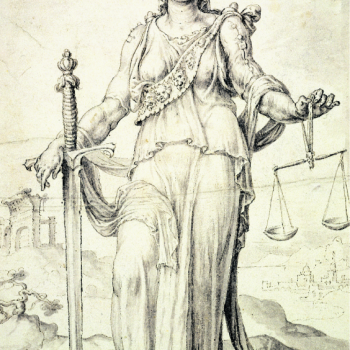Senate Democrats in Illinois have “approved legislation for a state graduated income tax, a top legislative priority for Gov. J.B. Pritzker.” The governor has proposed the “tax as a way to fix Illinois’ shaky finances. The proposal would increase taxes for the wealthy and lower taxes for the great majority (97 percent of state taxpayers) by applying different tax rates on different levels of income. Currently everyone” in the state “pays a flat income tax of 4.95 percent.” As of this writing, the “state House still needs to approve the measure in order for it to go before voters in the November 2020 election.” [1]
The specifics of the plan are this: The personal tax rate would be dropped “to 4.75 percent for the first $10,000 of income for single and joint filers. Income between $10,000 and $100,000 would be taxed at 4.9 percent, and the rate would remain 4.95 percent for income between $100,000 and $250,000.
 “From there, the top rates would be 7.75 percent for income up to $500,000, 7.85 percent for income between $500,000 and $1 million, and 7.95 percent for the entire income of someone earning more than $1 million in a year.
“From there, the top rates would be 7.75 percent for income up to $500,000, 7.85 percent for income between $500,000 and $1 million, and 7.95 percent for the entire income of someone earning more than $1 million in a year.
“Under Pritzker’s plan, a family of four with a household income of $61,000 would see $41 in income tax relief before any exemptions, deductions or credits, and a couple with an income of $250,000 would save $65, according to the governor’s office. A family of four with an income of $5 million would pay an additional $150,000 in state income taxes.”
Meanwhile, the “corporate tax rate would increase from the current 7 percent to 7.95 percent, matching the top personal rate.” [2]
Now it is Catholic teaching that a person’s means ought not be “drained and exhausted by excessive taxation. The right to possess private property is derived from nature, not from man; and the State has the right to control its use in the interests of the public good alone, but by no means to absorb it altogether. The State would therefore be unjust and cruel if under the name of taxation it were to deprive the private owner of more than is fair.” [3]
But how do we know what’s fair?
“Tax revenues and public spending take on crucial economic importance for every civil and political community. The goal to be sought is public financing that is itself capable of becoming an instrument of development and solidarity. Just, efficient and effective public financing will have very positive effects on the economy, because it will encourage employment growth and sustain business and non-profit activities and help to increase the credibility of the State as the guarantor of systems of social insurance and protection that are designed above all to protect the weakest members of society.” [4]
 Taxes are for the purpose of legitimate and necessary government spending. Contrary to what is being claimed by some, the amount raised should be sufficient to attain the goals just mentioned. Governmental operations should not be artificially restricted so that such needs cannot be met.
Taxes are for the purpose of legitimate and necessary government spending. Contrary to what is being claimed by some, the amount raised should be sufficient to attain the goals just mentioned. Governmental operations should not be artificially restricted so that such needs cannot be met.
But if fairness in taxation is to be achieved, taxes cannot be imposed indiscriminately. “In a system of taxation based on justice and equity it is fundamental that the burdens be proportioned to the capacity of the people contributing.” [5]
Taxes have to be paid in money, and it follows that the tax one is required to pay should be based on how much money he has. This rules out property, sales, and capitation taxes, which have a tendency to be regressive. It should go without saying that the poor should not pay a greater proportion of their income than do the rich.
But does a flat tax, where everyone pays the same percentage of income in taxes, pass muster? With such a system the rich pay a greater dollar amount than do the poor, and one can superficially analyze that as long as business, employment, and social insurance needs are met, there can be no objection to a flat tax.
 This fails to take into account, however, that a certain level of income is necessary to stay out of poverty. For example, according to the 2019 poverty guidelines for the 48 contiguous states, a family of four having an income of $25,750.00 is right on the poverty line. [6] If we were to have, say, a ten percent income tax, a person making $250,000.00 per year would pay $25,000.00 and our family of four would pay $2,575.00. The person making $250,000.00 per year would be left with $225,000.00 after taxes, while our family of four would have $23,175.00 left over. The family of four would be reduced to poverty after taxes!
This fails to take into account, however, that a certain level of income is necessary to stay out of poverty. For example, according to the 2019 poverty guidelines for the 48 contiguous states, a family of four having an income of $25,750.00 is right on the poverty line. [6] If we were to have, say, a ten percent income tax, a person making $250,000.00 per year would pay $25,000.00 and our family of four would pay $2,575.00. The person making $250,000.00 per year would be left with $225,000.00 after taxes, while our family of four would have $23,175.00 left over. The family of four would be reduced to poverty after taxes!
So it appears that a flat tax is irrational. On the other hand, if we say that our family of four doesn’t have to pay taxes on the first $25,750.00 of income, then we have, in actuality, imposed a progressive income tax, because the actual percentage of income paid will rise along with income.
It thus appears that if we are going to have a tax based on ability to pay, we are going to have to have a progressive income tax system. The question remaining is whether higher percentages should apply at higher levels of income. That depends on the legitimate needs of government, and, for Catholics, that requires that the government is able to act as a “guarantor of systems of social insurance and protection that are designed above all to protect the weakest members of society.”
The icon of St. Joseph the Worker is by Daniel Nichols.
Please go like Christian Democracy on Facebook here. Join the discussion on Catholic social teaching here.












